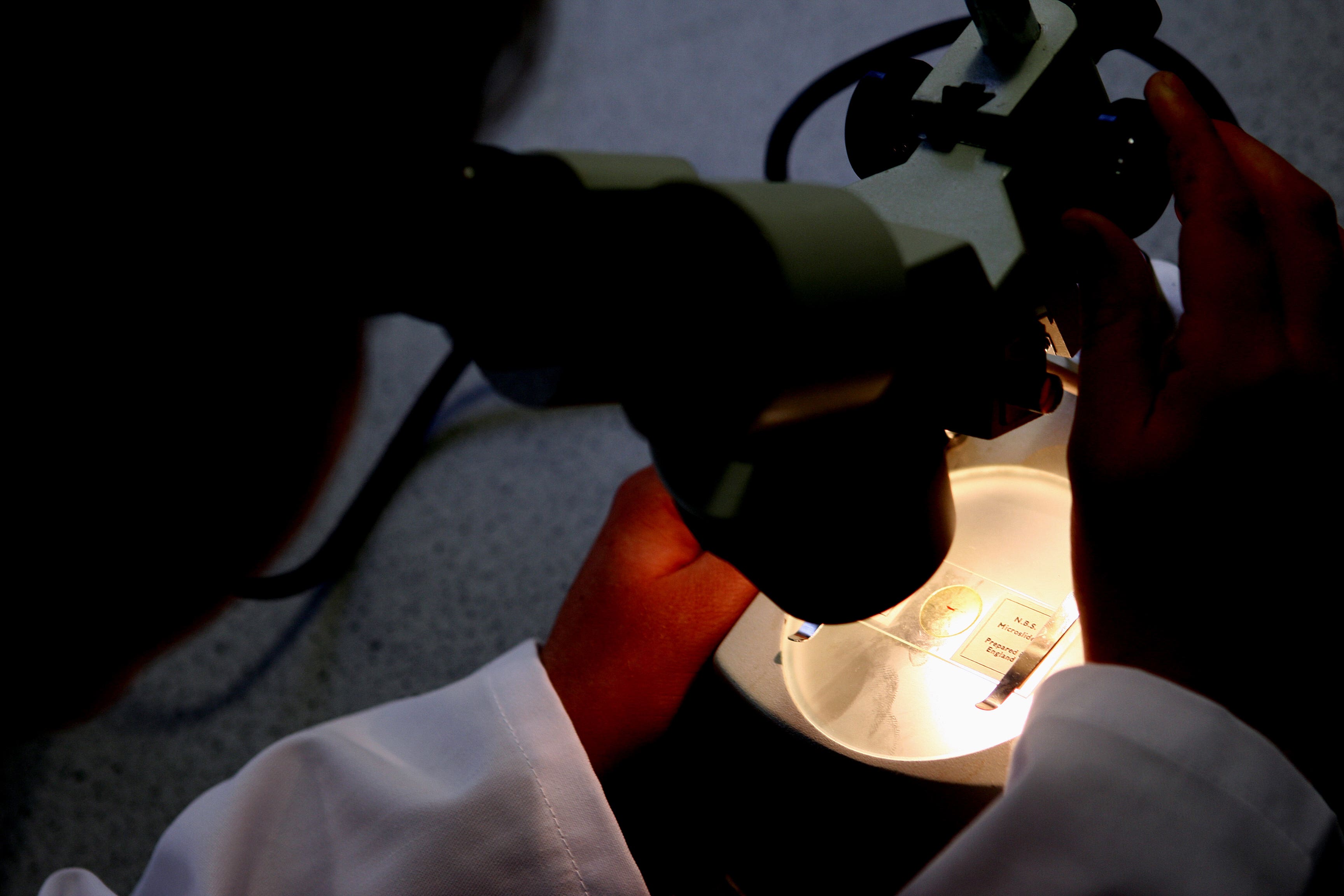Participating in genetic studies is in your genes, research suggests
The study equips scientists with the ability to identify and address participation bias.

Your support helps us to tell the story
From reproductive rights to climate change to Big Tech, The Independent is on the ground when the story is developing. Whether it's investigating the financials of Elon Musk's pro-Trump PAC or producing our latest documentary, 'The A Word', which shines a light on the American women fighting for reproductive rights, we know how important it is to parse out the facts from the messaging.
At such a critical moment in US history, we need reporters on the ground. Your donation allows us to keep sending journalists to speak to both sides of the story.
The Independent is trusted by Americans across the entire political spectrum. And unlike many other quality news outlets, we choose not to lock Americans out of our reporting and analysis with paywalls. We believe quality journalism should be available to everyone, paid for by those who can afford it.
Your support makes all the difference.People who take part in genetic studies are genetically more likely to do so, researchers say.
The ground-breaking study equips scientists with the ability to identify and address participation bias, marking a significant challenge in genetic research.
The bias occurs when the genetic data collected is not representative of the intended study population.
Our study identifies detectable footprints of participation bias in the genetic data of participants, which can be exploited statistically to enhance research accuracy for both participants and non-participants alike
Genetics is the study of how genes and traits are passed down from one generation to the next.
Stefania Benonisdottir, lead author of the study and a doctoral candidate from the Big Data Institute, said: “Currently, most genetic studies are based on genetic databases which contain large numbers of participants and a wealth of information.
“However, some people are more likely to be included in these databases than others, which can create a problem called ascertainment bias, where the genetic data collected is not representative of the intended study population.”
To study the link between genetics data and participation bias, the researchers from the University of Oxford’s Leverhulme Centre for Demographic Science and Big Data Institute turned to the UK Biobank which contains information from half a million people.
Using the UK Biobank data, the study found there is a genetic component to how likely someone is to participate.
The researchers suggest their findings highlight that participation could be an important human trait that has been previously underappreciated.
It may also introduce a new statistical framework that could lead to more accurate analyses of genetic data.
Professor Augustine Kong, senior author from the Leverhulme Centre for Demographic Science and the Big Data Institute, said: “Ascertainment bias poses a statistical challenge in genetics research, particularly in the era of big data.
“Adjustments for this bias often rely on known differences between participants and non-participants, introducing imperfections when answering questions involving variables only observed for participants, such as genotypes.
“Our study identifies detectable footprints of participation bias in the genetic data of participants, which can be exploited statistically to enhance research accuracy for both participants and non-participants alike.’
Researchers looked at the genetic data of more than 30,000 related people with white British descent from the UK Biobank.
They found that the genetic component underlying participation in the study is associated with, but distinct from, the genetic components of traits such as educational attainment and body mass index.
The genetic component of participation can be passed down through families and may affect people’s participation in many different studies over their lifetimes, the study found.
The findings are published in the Nature Genetics journal.